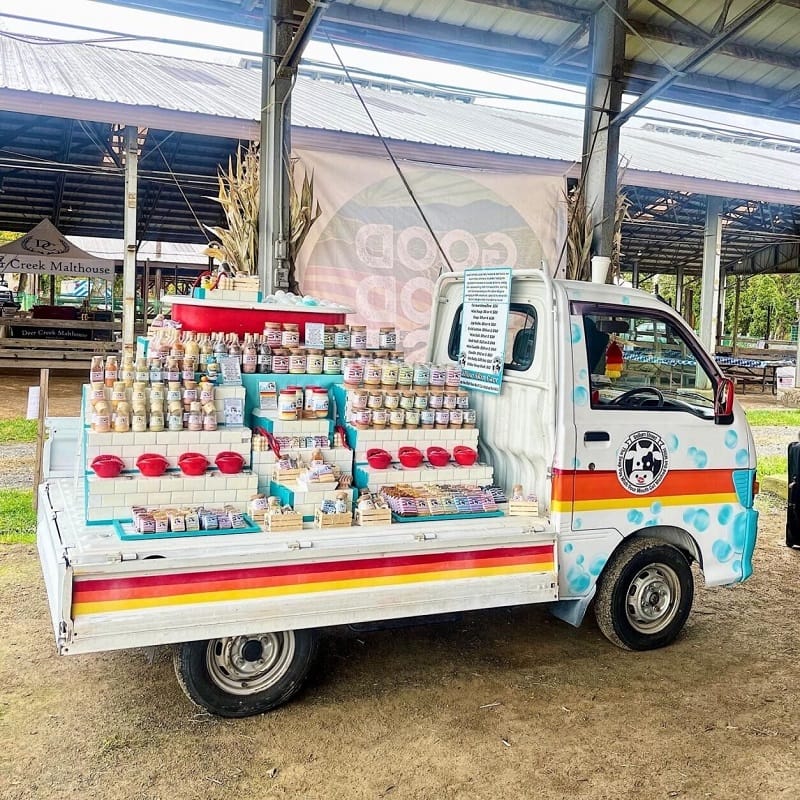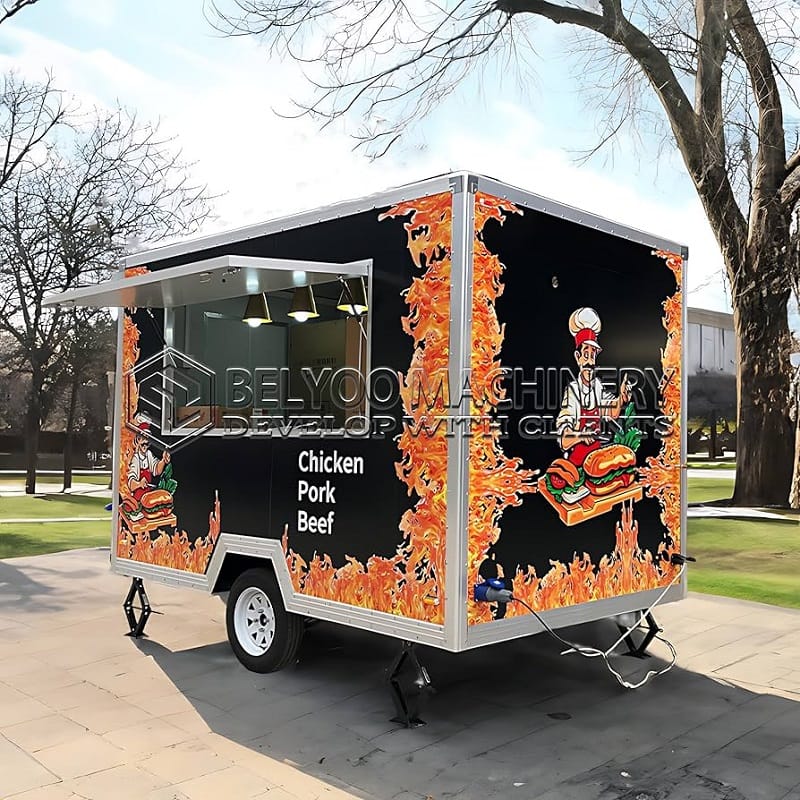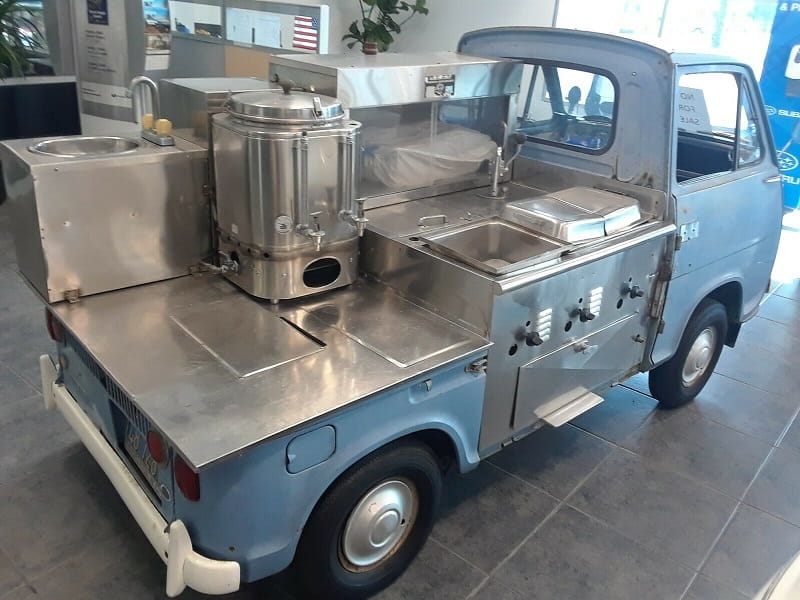This post contains affiliate links. This means I will make a commission at no extra cost to you should you click through and make a purchase [ “As an Amazon Associate, I earn from qualifying purchases.” ]. Read the full disclosure here.
Food Carts and Mini Trucks for Sale: Compact Solutions for Mobile Food Businesses GuideMechanic.Com Food carts and mini trucks are becoming increasingly popular in the mobile food industry.
They’re affordable, easy to operate, and flexible—ideal for small operators, startup concepts, and low-volume catering.
If you’re exploring food carts and mini trucks for sale, this guide gives you the key insights, purchase tips, and current price ranges to help you get rolling efficiently.
See Also: Compact Food Trucks for Urban Area
Food Carts and Mini Trucks for Sale: Compact Solutions for Mobile Food Businesses
Why Choose a Cart or Mini Truck?

Low startup cost – Prices often start in the single digits, making it easier to enter the food business.
- Simplified logistics – No need for a commercial driver’s license; tow your cart or drive your mini truck without extra certification.
- Quick setup – Build-out, permitting, and wrap installation take less time than full-size trucks.
- Perfect for niche menus – Great for specialties like coffee, ice cream, tacos, or infused beverages.
- Flexibility in location – Easily move between weekend markets, fairs, business districts, or pop-ups.
Types of Mobile Units
- 1. Food Carts
Push carts equipped with grills, fryers, cold storage, or coffee setups. Common at sports events, parks, campuses, and street fairs.
- 2. Towable Food Trailers
Mini-trailers (6–12 ft) hitched to a vehicle. Ideal for fixed locations or semi-mobile vendors.
- 3. Mini Trucks and Vans
Compact, self-drove trucks (e.g., Nissan NV200, Ford Transit Connect) fitted with small kitchens or beverage stations.
- 4. Converted Utility Vehicles
Vehicles like the Piaggio Porter or compact vans, repurposed as food-selling vehicles—compliant with local vending rules.
Price Table: Food Carts & Mini Trucks
Here are typical price ranges for each unit type, reflecting current market trends:
| Unit Type | Size / Year | Features Included | Price Range (USD) |
|---|---|---|---|
| Push Cart (New) | 6–8 ft | Grill, cooler, sink-ready | $3,000 – $6,000 |
| Snack Cart (Used) | 5–10 years old | Fryer, sneeze guard, small refrigeration | $2,500 – $5,000 |
| 8′ Towable Trailer | 2020+ | Sink, fridge, signage panel | $8,000 – $12,000 |
| 12′ Food Trailer (New) | 2021–2022 | Grill, burner, refrigeration, sinks | $12,000 – $20,000 |
| Mini Truck (Converted) | 2013–2018 | Espresso setup, fridge, water tank | $18,000 – $30,000 |
| Mini Truck (Full Build) | 2019–2022 | Full kitchen, branding, fire suppression | $30,000 – $45,000 |
| Compact Utility Van | 2010–2015 | Cold storage, prep counter | $15,000 – $25,000 |
| Small Step Van (Mini) | 2008–2012 | Built-in grills, sink, oven | $40,000 – $60,000 |
What Affects the Cost?
- Unit Size & Format
Vans or trailers cost more than push carts. Kitchen integration raises price significantly.
- Equipment Quality
Built-in grills, fire suppression, refrigeration, and electrical systems increase value.
- New vs. Used
New units cost more upfront but need fewer repairs. Used units offer bargains if inspected.
- Branding & Finish
Vinyl wrap, graphics, and professional layouts add to investment but improve visibility.
- Permit Readiness
Units already compliant with local health or fire codes will attract higher offers.
Food Carts and Mini Trucks for Sale

Inspection and Due Diligence
Push Carts and Trailers
- Check CO and CO₂ systems, plumbing, gas lines, electrical wiring.
- Inspect wheels, stability, hitch, or cart handles.
- Ensure materials are food-grade and cleanable.
Mini Trucks
- Inspect engine, brakes, transmission—even small trucks need mechanical care.
- Run generator, hood, prep lines, and water plumbing.
- Verify any built fixtures are securely installed and professionally done.
General Checks
- Verify unit title or ownership paperwork.
- Ask for maintenance logs, appliance warranties, or inspection certificates.
- Confirm dimensions and weight—especially important for towing compliance.
Financing and Budget Planning

Aside from the purchase price, budget for:
- Permits & licenses: $200–$800
- Insurance (vehicle/commercial): $800–$1,800/year
- Commissary or prep facility fees: $300–$600/month
- Wrap & menu signage: $1,000–$3,500
- Initial food inventory: $500–$1,500
- Generator maintenance or upgrade: $200–$800
Plan for 10–30% of the unit cost for these startup-related items.
Food Carts and Mini Trucks for Sale
DIY vs. Prebuilt Considerations
| Feature | DIY Build | Prebuilt Unit |
|---|---|---|
| Cost | Lower if you already own vehicle | Higher but turnkey-ready |
| Customization | Full control | Limited to existing layout |
| Time to Launch | Several weeks/months | Often days to weeks |
| Compliance Risk | Higher without professional support | Lower—usually built to code standards |
| Warranty/Support | Rarely available | Some units include limited warranty |
Best Use Cases
- Push Cart: Festivals, stadiums, school fairs, limited prep menus.
- Tow Trailer: Coffee, desserts, tacos—semi-mobile vendors with minimal infrastructure needs.
- Mini Truck: Food, coffee, packaged meals in urban or campus locations; easier to drive & license.
- Small Step Van: Compact but full-featured kitchens; ideal for catering pop-up dinners or parties.
Operational Tips
- Commissary
Even carts and small trailers often require a commissary kitchen for prep, cleaning, and waste.
- Permits
Vending rules vary—some cities restrict cart movement more than trucks.
- Mobility
Plan for maneuverability, parking, and access to power/water at your venues.
- Menu Focus
Menus should match your equipment space; smaller setups work best with focused offerings.
- Marketing
Leverage social media, presence at community events, and signage to build awareness.
Final Takeaway
Choosing a food cart or mini truck offers a compact, affordable pathway into the food business. With units ranging from $3,000 for carts to $45,000 for fully built mini trucks, these vehicles let you start small and scale smart. Ensure you select a model that meets your menu needs, complies with regulations, and matches your budget.
With thoughtful preparation, you can get cooking quickly—and test your concept without over-committing. Just remember: small doesn’t mean low importance. Clean workspaces, proper permits, and a focused menu are key to success.
- Coffee Food Trucks for Sale - July 12, 2025
- Pizza Food Trucks for Sale Ready to Use - July 12, 2025
- Vegan Food Trucks for Sale by Owner - July 12, 2025
